
Politics
08:45, 10-Mar-2018
CPPCC members hold press conference on improving people's livelihoods
CGTN

Members of the 13th National Committee of the Chinese People's Political Consultative Conference (CPPCC) are holding a press conference in Beijing on safeguarding and improving people's livelihood during the first session of the 13th National Committee of the CPPCC.
Attendees include Huang Runqiu, vice minister of environmental protection; Liu Limin, former vice minister of education; Liu Yucun, deputy Party secretary of Peking University; Xu Jiayin, chairman of Evergrande Group, and Liu Qiangdong, CEO of JD.com.
Huang Runqiu: Environment management a long way ahead
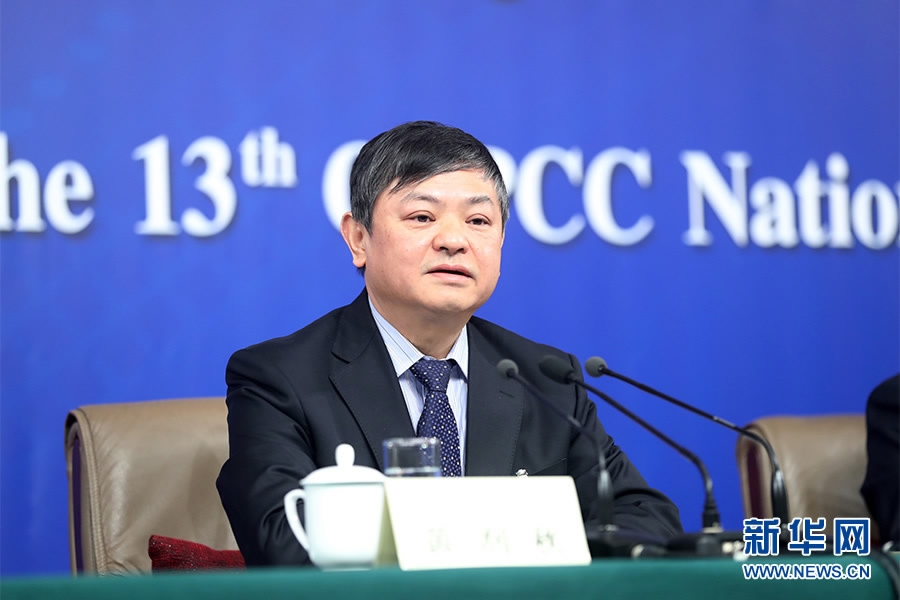
Huang Runqiu, vice minister of environmental protection /Xinhua Photo
Huang Runqiu, vice minister of environmental protection /Xinhua Photo
China's air pollution governance is still struggling to move forward and there is a long way to go, Huang said in answer to a question raised by the People's Daily.
He said the PM 2.5 dropped 39.6 percent in the Beijing-Tianjin-Hebei area in the past five years. Of the 338 municipal cities across the nation, the PM 10 dropped 22.7 percent.
"However, the methods we undertake are not fundamental and the improvement is limited… Less than one-third of the 338 municipal cities met the air quality standards."
Huang said the key to solving the problem lies in the reforms of industrial structure, energy structure and transportation structure. "Besides, [it] also depends on the participation of the public. Only can we keep the blue skies when all of us practice green development methods and lifestyles."
Liu Limin: China to increase public spending on preschool education
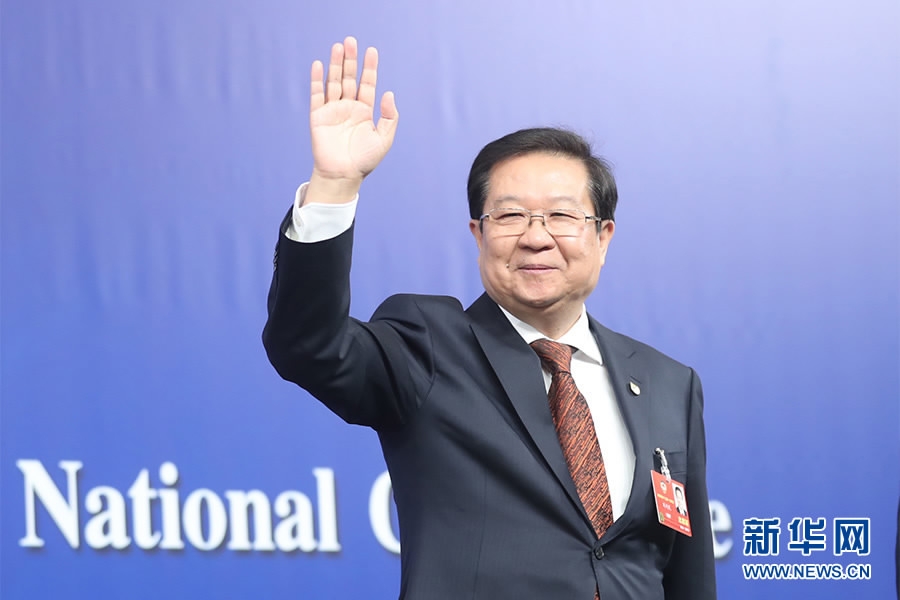
Liu Limin, former vice minister of education /Xinhua Photo
Liu Limin, former vice minister of education /Xinhua Photo
China’s preschool education is still facing both scale development and quality improvement issues.
Through two three-year action plans for preschool education, the central government has increased investment to drive input from local governments, raising the kindergarten enrollment rate from 50.9 percent to 79.6 percent in the seven years since 2010.
China now has 240,000 kindergartens and 44 million children while private and unlicensed for-profit kindergartens still make up the majority of Chinese kindergartens and parents are not happy about it.
To change this situation, China must stick to a five-step principle, Liu Limin said.
First, China promised to do everything possible to increase or expand the supply of resources for preschool education, and focus on vigorously developing public-run kindergartens, encouraging and supporting private kindergartens.
Second, China will increase investment in preschool education.
Third, China will strengthen the training of teachers. Measures will be adopted to guarantee salaries and benefits for preschool teachers and to increase their professional qualifications.
Fourth, China will push for legislation to clarify the responsibilities of government at all levels in the development of preschool education.
And lastly, China will tighten supervision of kindergartens to prevent malpractice.
"Through the five-step principle, in accordance with our established goals in the coming period, China will reach the kindergarten enrollment rate of 85 percent and at the same time to make inclusive kindergartens account for 80 percent."
Xu Jiayin: Enterprises must cooperate with local Party organs and governments
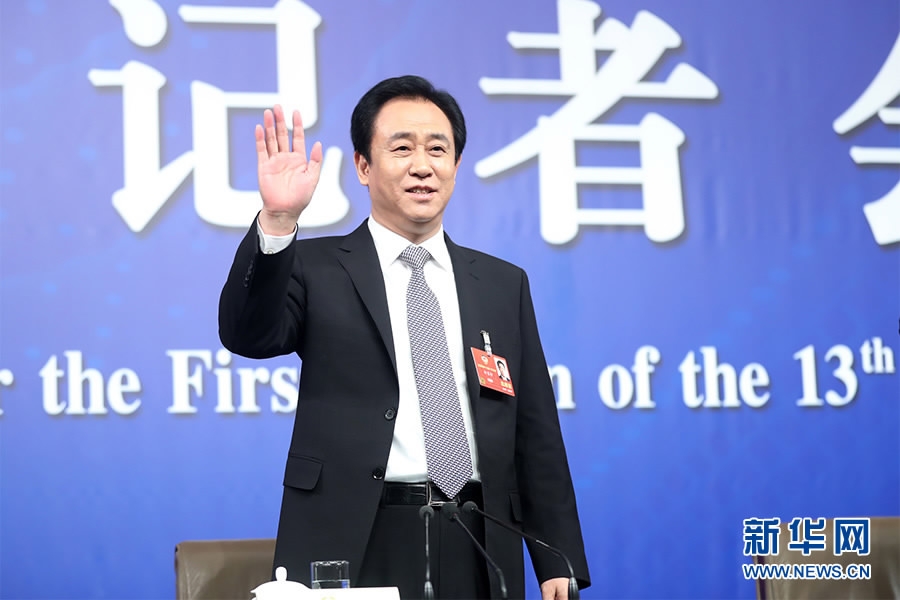
Xu Jiayin, chairman of Evergrande Group /Xinhua Photo
Xu Jiayin, chairman of Evergrande Group /Xinhua Photo
"In the past two years of poverty alleviation, what impressed me most is that enterprises must insist the leadership of the Party and government at all levels and they must send out a team that is good at management skills and can endure hardship," Xu Jiayin said.
The remarks came as the Evergrande Group leader took on a question by Guizhou TV concerning poverty alleviation in the southwest province.
Guizhou is at the forefront of China's poverty alleviation endeavor. Xu said the enterprises in the process should focus on three aspects, namely the industry, immigration and employment.
In the past two years in Bijie city, the Evergrande Group set up two bases – a vegetable and fruit production center and a beef cattle cultivation center – both of which are the biggest in southwest China.
The group also built 50 villages, nine immigration communities and an ancient town to host the relocation of 226,000 people. Meanwhile, the group provided job-seeking training to more than 80,000 residents and built schools, hospitals and welfare centers to better care the immigrants.
"Now our country has 30 million people living under the poverty line, 80,000 poverty villages and 25 million private enterprises. If one in every 300 private enterprises could help one village, then we can ensure that every village has assistance from an enterprise."
Liu Yucun: Medical system reform a universal problem
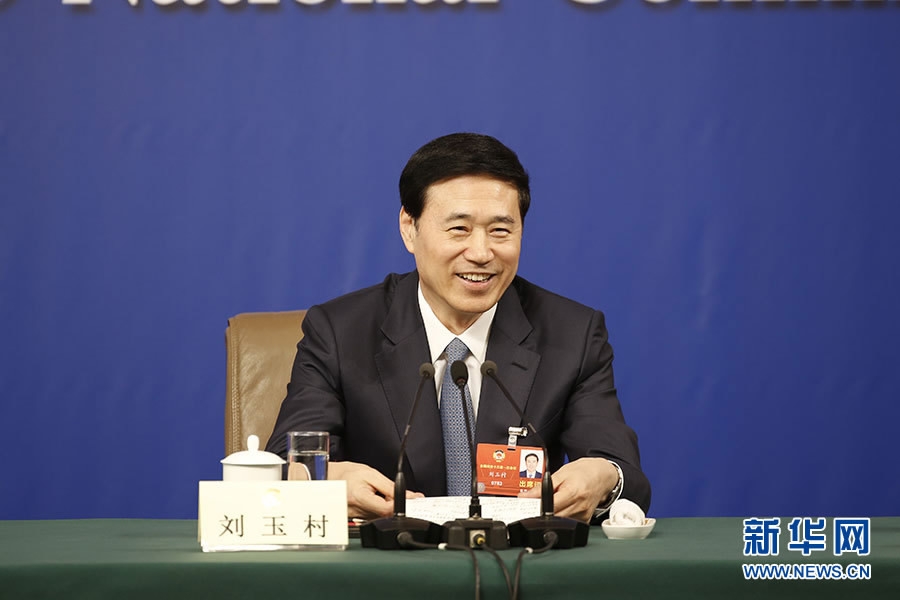
Liu Yucun, deputy Party secretary of Peking University /Xinhua Photo
Liu Yucun, deputy Party secretary of Peking University /Xinhua Photo
Answering a question from Xinhua News Agency on medical reforms, Liu Yucun said it is a problem troubling every country in the world.
He categorized the dilemma in China into three aspects. First of all is the conflict between limited investment and the growing and diversified demands. China's annual budget for the medical system is between 5 to 10 percent. However, the increase in the budget seems never to catch up with the demands of the public.
Second is the difference between general evaluation and personal experiences. Liu noted that China made satisfying achievements in medical reforms and more than 1.35 billion citizens are covered by the medical insurance. But when asked about people's impressions, they only looked at the daily issues such as which doctor I want to see, how to register and so on, which do exist certain difficulties during the process.
And the third is the balance of interests between different groups.
Liu Qiangdong: E-commerce giant pushes forward poverty alleviation
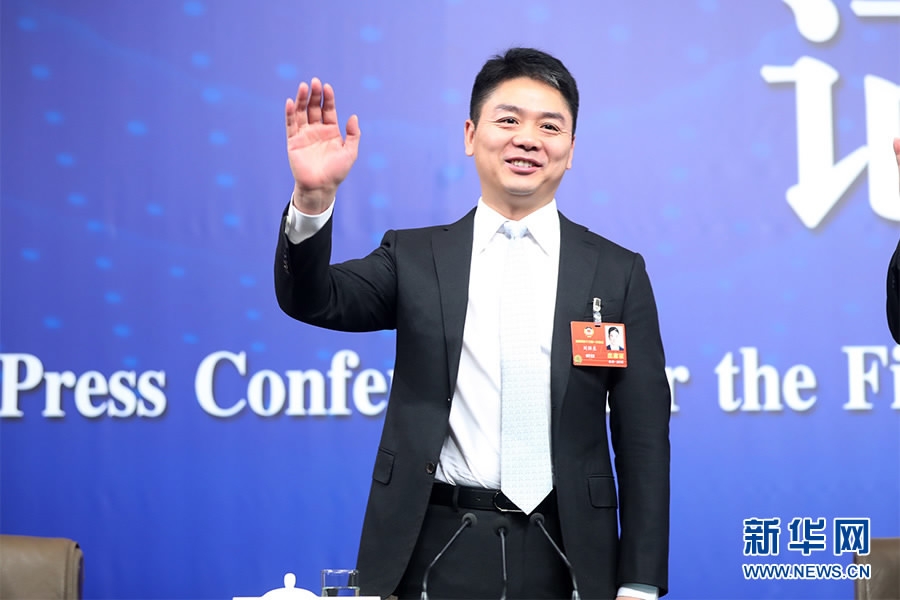
Liu Qiangdong, CEO of JD.com /Xinhua Photo
Liu Qiangdong, CEO of JD.com /Xinhua Photo
China is pressed for time to lift all people out of poverty by 2020, which is when the central government has pledged to finish building a moderately prosperous society in all respects.
In speaking of an e-commerce-driven poverty alleviation model, Liu thinks long-term mechanism and logistics are essentials.
"In the past few years, JD.com has always emphasized the importance of poverty alleviation in the industry. The very thing is that we hope to help farmers or poor households establish a mechanism that can run on their own. It's not like the day we help them, they are rid of poverty. And the days we don’t help them, they go back to poverty again," Liu said.
Poor rural logistics is a root problem that has led to poverty in China’s countryside.
A lot of high-quality produce from rural areas have no price competitiveness when transported to cities like Beijing and Shanghai because of high logistics costs.
JD.com is aiming to cut logistics costs and increase efficiency in rural areas to help in poverty alleviation.
"JD.com will help more poverty-stricken areas to make their own brands and provide assistance for these people in logistics, and promotion of agricultural product brands," said Liu.
7km

SITEMAP
Copyright © 2018 CGTN. Beijing ICP prepared NO.16065310-3
Copyright © 2018 CGTN. Beijing ICP prepared NO.16065310-3